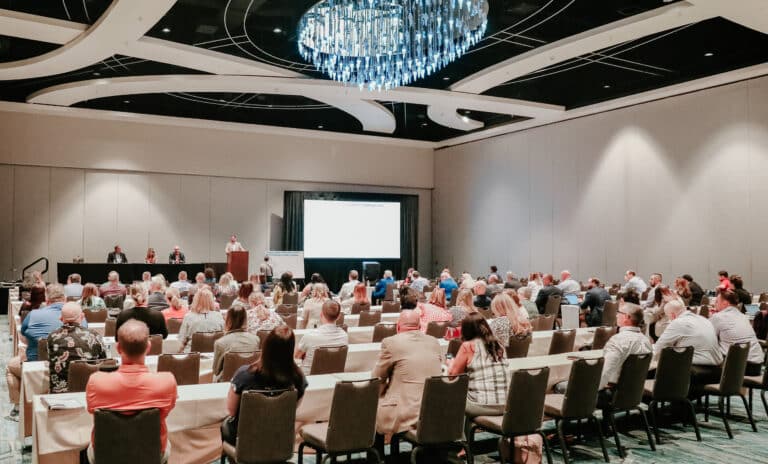Leveraging data-driven insights to inform your business decisions can only be successful if the data is accurately cataloged and measured.
Nearly two years since the onset of the COVID-19 pandemic, carriers continue to experience disruptions in the way data are cataloged and the way decisions are made. We spoke with Dan Link, Vice President for Consultative Analytics, to understand how decision-support tools can help improve insights and increase cost savings.
Q: Can you explain why it is essential for carriers to separate their COVID-19 and non-COVID-19 claims? What are the risks in pooling them together?
Without question, the COVID-19 environment that we are operating in has significantly altered the claims landscape in regard to workers’ compensation. As such, it is beneficial to think about and measure two distinct sets of claims: claims related to COVID-19 and claims unrelated to COVID-19.
The overwhelming majority of COVID-19 claims are relatively low in complexity and severity. According to recent studies by Mitchell and NCCI, indemnity claims have accounted for approximately 75% of COVID-19 claims. However, the majority of COVID-19 indemnity claims incur only a small portion of the indemnity cost related to isolation, recovery periods, and lost workdays associated with COVID-19. These claims are more likely to close faster with shorter durations, have minimal or no medical costs, and are less likely to involve litigation. NCCI recently estimated that the average cost of a COVID-19 claim is $7,800, Mitchell’s study estimated the amount to be at $4,300, and GB’s experience with COVID-19 claims shows less than an average of $4,000 per case. Contrast this information with the average cost of a non-COVID-19 indemnity claim with seven or more days of lost time that WCRI estimates to be approximately $42,000 at 36-month maturity across its 18-state median.
Q: What are the risks in pooling them together? Can you provide an example?
Because the outcomes of COVID-19 claims and non-COVID claims differ so significantly, and because for the past two years, COVID-19 claims have made up a sizeable portion of the overall volume of workers’ compensation claims (approximately 10%), it is critical to separate the reporting of claim outcomes for each set. If both sets of claims are pooled together, the outcomes will look very different from historical norms, as apples-to-apples trend comparisons are inaccurate. For example, pooling COVID-19 claims with non-COVID-19 claims would lower overall average costs, increase closure rates, and lower durations relative to historical experience and based on the change in the mix.
Q: Specifically, what types of decision-support tools can help carriers improve data filtering and, ultimately, key insights?
First, from a reporting standpoint, GB has created several on-the-shelf reports to track our clients’ COVID-19 claims. We can report the incident and claim volumes related to COVID-19 as well as draw comparisons to prior years, and we can generate detailed loss runs and even produce reports showing all notes referring to the term COVID. In addition, we have segmented our stewardship reporting so that we can analyze COVID-19 and non-COVID-19 claim outcomes separately. Specifically, we incorporated a COVID-19 scorecard into our stewardship reporting for at-a-glance benchmark comparisons on these claims.
While the majority of COVID-19 claims are largely of low complexity, there are, of course, outliers. A recent NCCI study found that COVID-19 claims that require hospitalization cost an average of $38,500 each. For these outliers, it is critical to have decision-support tools to help flag higher complexity claims. At GB, we have built and integrated our decision-support tools to help our resolution managers make more informed decisions on reserving, nurse case assignments, provider quality, and litigation propensity.
Q: How has COVID-19 impacted the way third-party administrators (TPAs) help carriers analyze data?
The COVID-19 pandemic has required us to quickly become adept at segmenting COVID-19 and non-COVID-19 claims in our reporting functionality as well as managing COVID-19 claims from an operations perspective. In short, it has dramatically changed our processes in a very short time. Carriers who are not yet aware of how COVID-19 has changed outcomes in their workers’ compensation programs may already have significant blind spots regarding their book performance.
Q: How does GB utilize carrier industry benchmarking data to enhance analysis?
The goal of GB’s consultative analytics team, in conjunction with our client services and claims operations colleagues, is to help our clients continuously improve their outcomes by finding opportunities in their programs relative to historical experience and against meaningful benchmarks. Whether it is segmenting COVID-19 claims appropriately or being able to distill other claim data into meaningful segmentation outside of the challenges that the pandemic has presented, GB leads the industry in innovative tools to help make these decisions. In 2016, GB built a best-in-industry benchmarking approach known as the Severity Mix Adjusting Rating Technique (SMART) that scores each claim’s complexity based on dozens of variables, including jurisdiction, accident type, age of the claimant, medical procedures, and diagnoses. SMART allows us to focus on areas of opportunity for clients by eliminating the confusion caused by less robust benchmarking techniques. In addition, we can also isolate the effects of industry differences and compare outcomes over time in our GB Industry Outcomes Dashboard. This tool provides greater insight for carriers looking to expand into new regions, industries, or lines of coverage.
Q: How does the analysis of specific patterns (such as IBNR) add a valuable dimension of insight to carrier business decisions?
Many of the claims that we handle at GB, such as workers’ compensation, general liability, and specialty liability claims, are considered long-tail lines. Often, a new carrier in a market or a startup carrier does not have the historical experience or data to accurately determine how the development of long-tail lines might look, especially when considering different jurisdictions and state-specific legislation that can lead to vastly different experience assumptions. GB has extensively incorporated triangle metrics throughout our stewardship process by including triangle metrics in each pay component of a claim, and GB has focused on helping to provide clarity and transparency on development patterns. In addition, the GB Industry Outcomes Dashboard contains 20 years of claims history information and was built specifically with long-tail experience in mind.
Explore more opportunities for your analytics
Dan Link, Gallagher Bassett US Vice President for Analytics, specializes in structuring, analyzing, and executing strategic initiatives that result in profitability improvement and revenue growth. Connect with Dan on LinkedIn or get in touch with the GB team to find out how our dedicated analytics consultants provide custom carrier solutions powered by our suite of proprietary decision-support tools.






